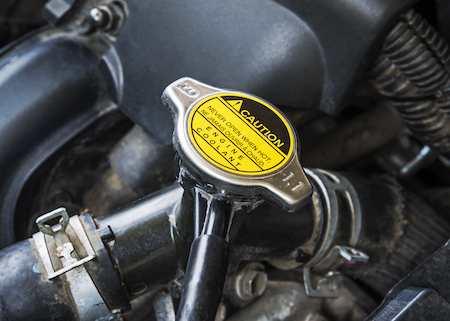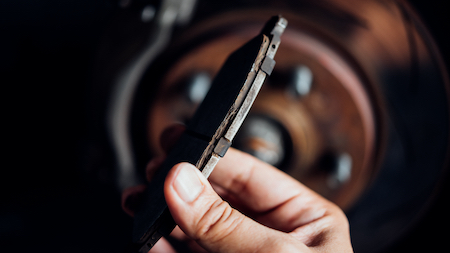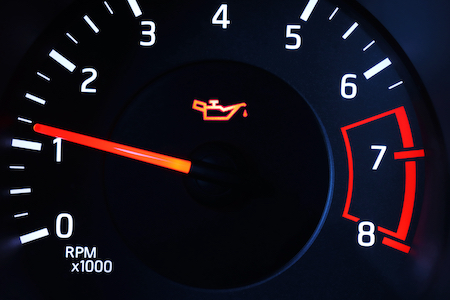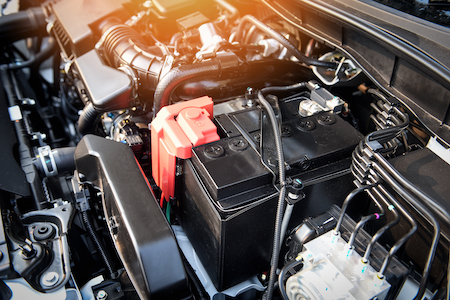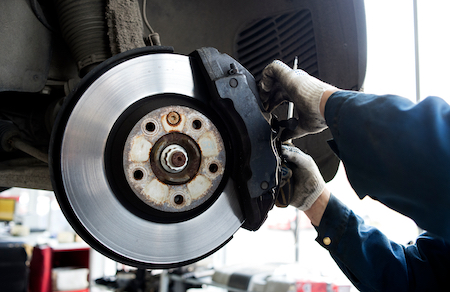What does your car’s radiator do? If you’re like most drivers, you may have a vague idea, but you could never point it out if you looked underneath the hood.
A car radiator is a heat exchanger used to lower the antifreeze temperature as it circulates in your engine. A radiator contains a series of narrow tubes that are designed to disperse heat rapidly, which helps keep the operating temperature of your engine in check.
In addition to the narrow tubes that allow antifreeze to flow, it also has a cooling fan that draws in cool air at the front of the vehicle. This is what helps prevent the engine from overheating.
A radiator is considered to be one of the main pieces of equipment in your vehicle’s cooling system. It’s placed at the front of the engine, where it can take in airflow, which allows circulation for the cooling process. It received a continuous supply of antifreeze, which flows through the engine to keep all parts moving and at the right temperature.
Hot antifreeze moves in while cooled antifreeze moves out. It uses a pump to ensure the proper flow through the system, and is designed to discharge at the appropriate speed. That sums up the entire movement of coolant … as long as the radiator is doing its job.
If any piece of the coolant system isn’t working, it can cause problems.
Common car radiator problems
Just like other parts of your car, the radiator can experience problems if any one piece isn’t working at its optimal level. A regular maintenance schedule is key to keeping it performing at its best. While radiators don’t fail often, the results can be extreme. If the engine overheats, you may well be looking at an entire engine replacement.
How do you know if you have a problem? Like other systems on your car, before radiator problems escalate, it will give off warning signs.
Leaking coolant – While a radiator leak can be caused by several issues, corrosion surrounding the radiator, hoses, and other components is one of the most common. It can be caused by rust, holes or cracks in the hoses, general deterioration, excessive pressure on the system, and more. Luckily, antifreeze/coolant has a distinctive fluid that’s easy to notice if it leaks. Watch for a sticky, bright-colored liquid. Coolant is usually thought of as a green color, but in the past, manufacturers have made it yellow, pink, red, blue, and green. It depends on the brand you use. Without proper levels of coolant, your engine will run hot, until it eventually fails. Getting it checked and fixed is vital to keep your car running.
Malfunctioning thermostat and water pump – A radiator works hand in hand with the thermostat and water pump. If any one of these components stops working, your engine is at risk of running hot. When the water pump malfunctions, the coolant won’t circulate as it should. And if the thermostat goes bad, the system won’t know when to release proper flow of coolant, which can quickly cause the vehicle to overheat. It may stick closed and not release enough, or stick open and not allow your vehicle to reach proper temperature. Bot of these items can put your radiator at risk.
Rust in the radiator – In order for a radiator to operate, it sees a constant flow of liquids and electricity through the system’s metal components. This continuous flow creates the perfect environment for oxidation, rust, and other corrosion to build. When voltage clears a path through the coolant, damage can cause internal rusting, pitting, or flaking inside the cooling system. Rusting eventually leads to cracks and holes, which allow leaking to occur. While rusting in the radiator is common, rusting on the outside can also occur in colder climates where road salt and other winter agents make their way inside your engine compartment. It’s best to inspect underneath the hood regularly to ensure you don’t have a problem. If you notice your antifreeze has turned a brown or reddish color, it’s an indicator it’s been contaminated with rust.
Sludge build-up – Like other fluids inside your vehicle, as coolant ages, it can see a build-up of mineral deposits and other debris. As it accumulates and thickens, it can clog up the radiator, making it difficult to distribute coolant properly throughout the system. Sometimes you can notice this by seeing a reduction in heat into the interior cabin.
Overheating – The radiator, water pump, and thermostat all work together to keep your cooling system running. If one component fails, it can cause problems with your cooling system. You may also find yourself in a situation where you’re sitting in traffic or idling, and the temperature spikes. This could be a result of a failing radiator fan. Modern cars also have an electric fan that draws air into the radiator to ensure it stays cool while you’re idling or moving at a low speed. If this fan breaks, overheating can occur, especially if idling for a while.
Air in the cooling system – A radiator is sealed to ensure maximum flow throughout the cooling system. If air suddenly gets into the system, it can create pockets that will ultimately restrict proper flow of fluid. In most cases, air gets into the system during the radiator flushing process.
Can you repair a radiator, or do you have to replace it?
The cooling system accounts for a large amount of the breakdowns on the road, with overheating one of the most common. Luckily, many of the problems associated with the cooling system can be fixed if caught early enough. The key is in detecting the problem early before it destroys the engine.
When you notice your vehicle in the first stages of overheating, it’s important to bring it to a mechanic quickly for a thorough inspection. If they diagnose the problem early, they can tell you exactly where the problem lies. It may be something as simple as fixing a leaky hose.
Some parts of the cooling system will cost more to repair than others. But if you fix the problem component, it won’t have a chance to escalate to other areas, causing more components to break during the process. A leaky radiator hose will cost less than replacing a water pump.
By allowing a mechanic to check the system early, you’ll save more in potential repair bills, and be back on the road without worries.

